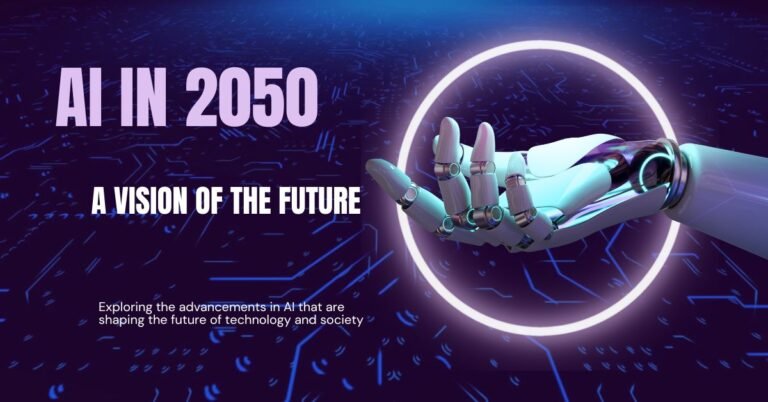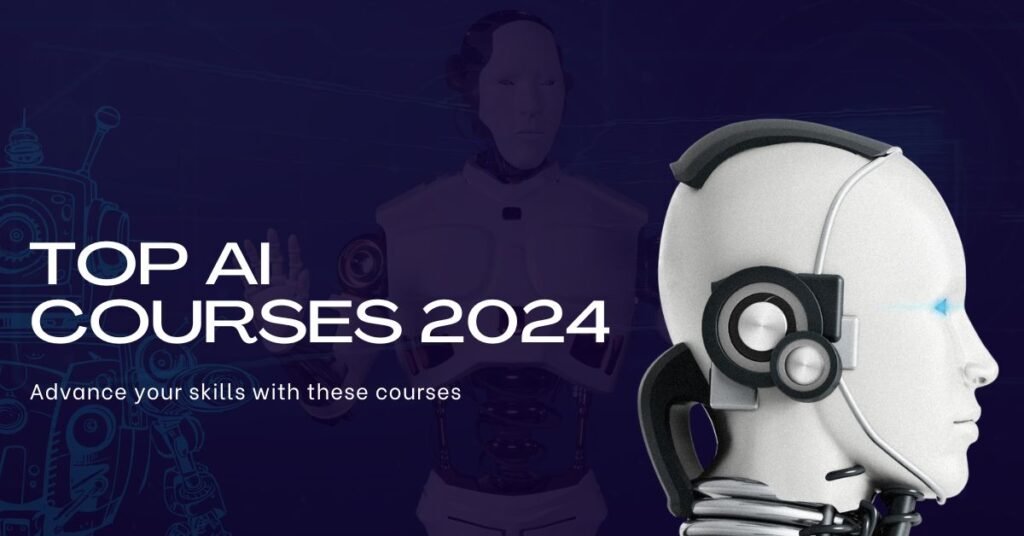Artificial Intelligence (AI) has already revolutionized many aspects of our lives, from healthcare and finance to education and entertainment. But what might AI look like in 2050? As we imagine the future of this transformative technology, we can anticipate groundbreaking advancements that will reshape society, industry, and even our daily existence. Let’s take a look at some of the potential developments and implications of AI in 2050.
1. Ubiquitous AI Integration
By 2050, AI will likely be seamlessly integrated into almost every aspect of life. From smart cities that use AI to manage infrastructure and energy consumption to personalized AI assistants that handle our schedules, finances, and healthcare needs, AI will act as an invisible layer guiding our day-to-day experiences. This level of integration will go beyond just convenience; it will become essential for managing the complexity of modern life. Homes, cars, and entire cities will become smarter, self-regulating systems that anticipate human needs in real time.
For a glimpse into how smart cities are evolving with AI, check out Smart Cities Powered by AI.
2. AI and Healthcare: Revolutionizing Medicine
The healthcare industry will see one of the most profound transformations by AI. By 2050, AI-driven diagnostics and treatments will be the norm. AI will be capable of analyzing genetic information, medical history, and real-time health data to predict illnesses before symptoms even appear. Robotic surgeons could perform procedures with extreme precision, reducing human error, while AI-driven drug discovery will accelerate the development of personalized medicine tailored to individual genetic profiles.
Telemedicine, enhanced by AI, will become the default mode of healthcare delivery, with AI chatbots handling basic consultations and human doctors stepping in only for complex cases. The result will be a more efficient, accessible, and personalized healthcare system where many diseases can be treated preemptively rather than reactively.
For more on how AI is revolutionizing healthcare, visit AI in Healthcare Innovations.
3. AI in Education: Personalized Learning
Education will undergo significant changes as AI continues to advance. In 2050, AI will offer fully personalized education experiences for students. Learning will no longer be confined to traditional classrooms or even set curriculums. AI will tailor lessons to individual learning styles, progress rates, and preferences. This could mean that students will have AI tutors that adapt to their personal learning pace and interests, making education more engaging and effective.
Virtual and augmented reality, powered by AI, will provide immersive learning experiences. Instead of reading about historical events, students may be able to experience them through AI-generated simulations. This type of education could help bridge gaps in learning disparities, providing equal opportunities for students worldwide.
To learn more about AI’s impact on education, check out AI and Personalized Learning.
4. AI and the Workforce: The New Economy
The impact of AI on the workforce has been a topic of debate for years, and by 2050, this shift will have reached a new equilibrium. While automation will take over many routine and repetitive jobs, AI will also create new opportunities in emerging fields. Humans will likely work alongside AI in more creative, strategic, and complex tasks, where human intuition and emotional intelligence are still necessary.
AI may also enable shorter workweeks, as machines take on more labor-intensive jobs. Universal basic income (UBI) could become a reality in many countries as AI drives unprecedented productivity. The rise of an AI-driven economy may lead to a reassessment of the concept of work itself, with more focus on creative endeavors, human interaction, and personal fulfillment.
To explore how AI might reshape the workforce, visit Future of Work with AI.
5. AI and Ethics: Navigating the Challenges
As AI becomes more advanced and ubiquitous, ethical considerations will take center stage. Questions surrounding AI’s role in decision-making, surveillance, privacy, and bias will require careful navigation. By 2050, we may have global regulatory frameworks that guide AI development to ensure it aligns with human values and rights.
One of the biggest challenges will be ensuring that AI remains transparent and accountable. AI systems will need to be designed to explain their decisions and ensure they don’t perpetuate biases or discrimination. There will also be ongoing debates about AI’s role in government, law enforcement, and warfare, as autonomous systems take on more responsibilities in these areas.
For insights on AI ethics and challenges, visit AI Ethics Guidelines.
6. AI and Society: A Cultural Shift
The cultural impact of AI will be immense by 2050. With AI deeply embedded in everyday life, society will undergo profound shifts in how people interact, form relationships, and perceive the world. AI companions, for instance, may become commonplace, offering emotional support, companionship, and even therapy to those in need. The line between human and machine interaction will blur as AI becomes more human-like in its responses and behaviors.
Moreover, AI will transform the arts, enabling new forms of creativity and expression. AI-generated art, music, and literature could challenge traditional notions of authorship and originality, leading to new movements and genres that blend human and machine collaboration.
To explore AI’s role in creativity, visit AI and Creative Arts.
7. The Future of AI: Unknown Possibilities
While many predictions about AI in 2050 are grounded in current trends and research, the future remains uncertain. The pace of AI development could accelerate beyond our current understanding, leading to unexpected breakthroughs. There could be entirely new forms of intelligence, beyond human or artificial, that redefine our relationship with technology and the world around us.
In summary, AI in 2050 promises to bring about unprecedented changes across every facet of life. From healthcare and education to the workforce and society, AI will be a driving force in shaping the future. However, with these advancements come significant ethical and societal challenges that must be addressed to ensure AI benefits humanity as a whole. The future of AI is filled with both excitement and uncertainty, and only time will tell how these innovations unfold.



